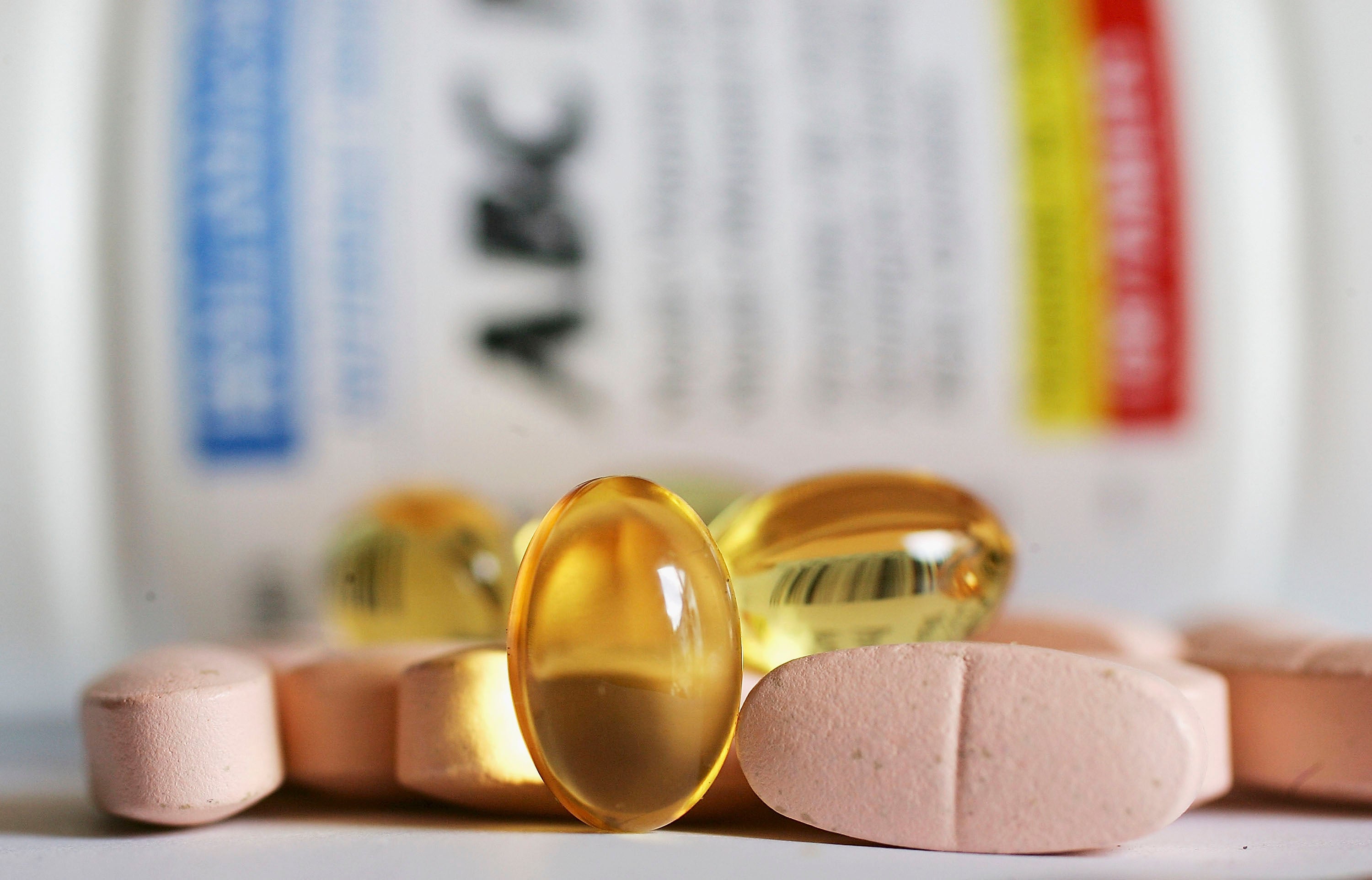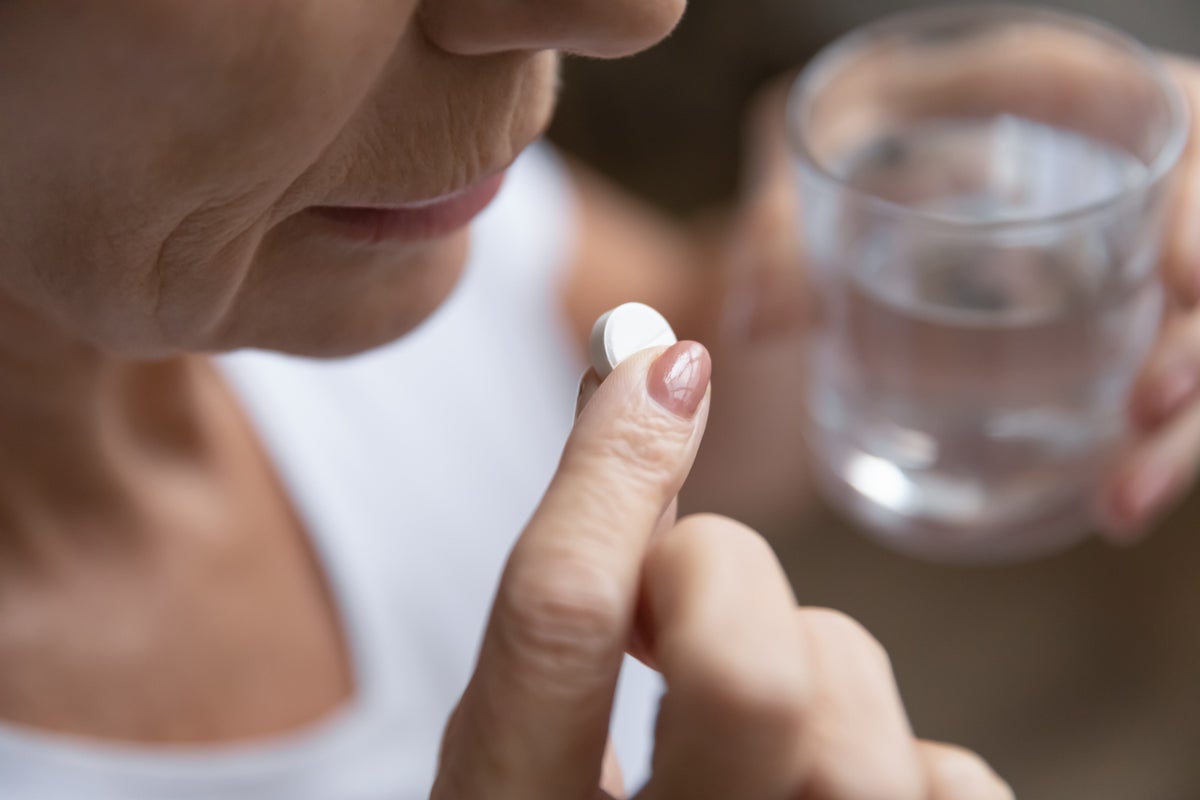Your support helps us to tell the story
From reproductive rights to climate change to Big Tech, The Independent is on the ground when the story is developing. Whether it’s investigating the financials of Elon Musk’s pro-Trump PAC or producing our latest documentary, ‘The A Word’, which shines a light on the American women fighting for reproductive rights, we know how important it is to parse out the facts from the messaging.
At such a critical moment in US history, we need reporters on the ground. Your donation allows us to keep sending journalists to speak to both sides of the story.
The Independent is trusted by Americans across the entire political spectrum. And unlike many other quality news outlets, we choose not to lock Americans out of our reporting and analysis with paywalls. We believe quality journalism should be available to everyone, paid for by those who can afford it.
Your support makes all the difference.Read more
Vitamin D supplements could help protect the caps on our chromosomes that slow ageing, sparking hopes the sunshine vitamin might keep us healthier for longer, a recent study suggests.
The researchers discovered that taking 2,000 IU (international units, a standard measure for vitamins) of vitamin D daily helped maintain telomeres – the tiny structures that act like plastic caps on shoelaces, protecting our DNA from damage every time cells divide.
Telomeres sit at the end of each of our 46 chromosomes, shortening every time a cell copies itself. When they become too short, cells can no longer divide and eventually die.
Scientists have linked shorter telomeres to some of our most feared diseases of ageing, including cancer, heart disease and osteoarthritis.
Smoking, chronic stress and depression all appear to speed up telomere shortening, while inflammatory processes in the body also take their toll.
Beyond strong bones

open image in gallery
A review of evidence found that vitamin D supplements can cut respiratory infections, especially in people who are deficient (Alamy/PA)
It is well known that vitamin D is essential for bone health, helping our bodies absorb calcium. Children, teenagers and people with darker skin or limited sun exposure particularly need adequate levels to build and maintain strong bones.
But vitamin D also powers our immune system. A review of evidence found that vitamin D supplements can cut respiratory infections, especially in people who are deficient.
Early research even suggests it might help prevent autoimmune diseases like rheumatoid arthritis, lupus and multiple sclerosis, though more trials are needed.
About the author
Dervla Kelly is an Associate Professor of Pharmacology at the University of Limerick.
This article was originally published by The Conversation and is republished under a Creative Commons licence. Read the original article.
Since inflammation damages telomeres, vitamin D’s anti-inflammatory effects could explain its protective role.
In this recent study, from Augusta University in the US, the researchers followed 1,031 people with an average age of 65 for five years, measuring their telomeres at the start, after two years, and after four years. Half took 2,000 IU of vitamin D daily, while the other half received a placebo.
The results showed that telomeres were preserved by 140 base pairs in the vitamin D group, compared with a placebo. To put this in context, previous research found that telomeres naturally shorten by about 460 base pairs over a decade, suggesting vitamin D’s protective effect could be genuinely meaningful.
This isn’t the first promising finding. Earlier studies have reported similar benefits, while the Mediterranean diet – rich in anti-inflammatory nutrients – has also been linked to longer telomeres.
The catch

open image in gallery
It is well known that vitamin D is essential for bone health, helping our bodies absorb calcium (Getty)
But there are some important points to note. Some researchers warn that extremely long telomeres might actually increase disease risk, suggesting there’s a sweet spot we don’t yet understand.
There’s also no agreement on the right dose. The Augusta researchers used 2,000 IU daily – much higher than the current recommended intake of 600 IU for under-70s and 800 IU for older adults. Yet other research suggests just 400 IU might help prevent colds.
Experts say the optimal dose probably depends on individual factors, including existing vitamin D levels, overall nutrition and how the vitamin interacts with other nutrients.
Although these findings are exciting, it’s too early to start popping high-dose vitamin D in the hope of slowing ageing. The strongest evidence for healthy ageing still points to the basics: a balanced diet, regular exercise, quality sleep, not smoking and managing stress, all of which naturally support telomere health.
However, if you’re deficient in vitamin D or at risk of poor bone health, supplements remain a sensible choice backed by decades of research. As scientists continue unravelling the mysteries of ageing, vitamin D’s role in keeping our cellular clocks ticking may prove to be just one piece of a much larger puzzle.

